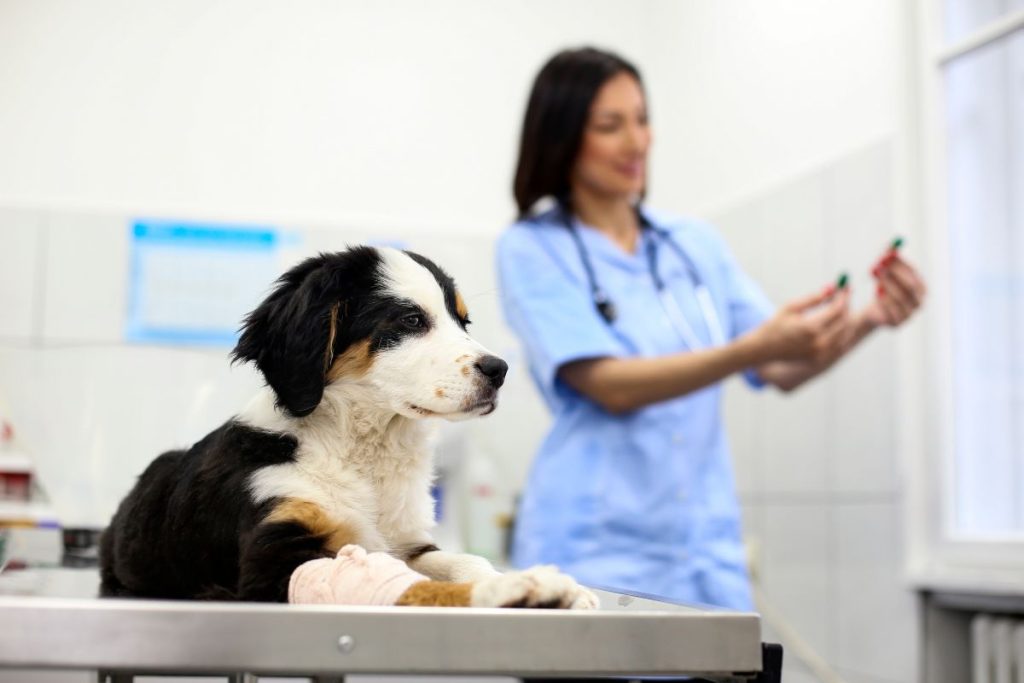The Importance of a Vet Receptionist
We should always celebrate Veterinary Receptionist Week. Veterinary receptionists make all scheduled call back and reminder calls at the doctor’s request. By ensuring the front office runs fast, so you don’t keep clients waiting, they help improve efficiency. They also play a crucial part in interacting with and teaching clients about the health and welfare of pets.
Among many other advantages, investing in your veterinary receptionists can raise the team’s morale, improve practice effectiveness, and generate more revenue.
How to Show Appreciation to Your Veterinary Receptionist
During Veterinary Receptionists Day, we can demonstrate to these individuals that we genuinely understand who controls the office.
Veterinary receptionists are responsible for a variety of tasks. But frequently, they serve as the boss’ gatekeepers. Therefore, be careful how you handle them, especially if you have a crucial meeting with the CEO. During veterinary receptionist appreciation day, you can do the following:
Gift Them a Card
You can appreciate your receptionist by giving them a gift card to their favorite restaurant or a note highlighting a particular instance when they excelled in their role. This will cheer them up, especially when you consider their preferences. They will take note of and value your consideration of their preferences.
Increase Their Pay
While handwritten compliments are acceptable, they don’t cover the cost of living. Do you think your vet receptionist deserves a raise? You can increase their pay to appreciate them during this day.
A Day Off
If you cannot offer a pay rise, you can grant your vet receptionist a day off to celebrate them. They’ll have an opportunity to relax, which will benefit them.
Pot a Plant
This is a memorable act. Long after the celebration, a living plant is a constant reminder of your gratitude to your vet receptionist.
Make a Social Media Shoutout
A Facebook post or tweet in honor of your vet receptionist will make them feel especially appreciated if they enjoy receiving attention from the public.
Purchase a Book
Giving your vet receptionist the new edition of the revised dvm360 Veterinary Receptionist’s Handbook will demonstrate your commitment to their professional development and lifelong learning. Just remember to write a brief remark on the inner flap expressing gratitude to them for their dedication to your practice and your group.
Vet Receptionist Week Gift Ideas From I Love Veterinary’s Store
You can buy gifts for your veterinary receptionist from the I Love Veterinary store to appreciate them during Vet Receptionist Week. These include the following:
A T-shirt with veterinary quotes and images.A tote bag with the best design and favorite quotes for veterinary receptionists.An engraved pen that can have the veterinary receptionist’s name on it.A mug with a nice quote engraved with the receptionist’s name.Sneakers in different colors and animal-related designs.A necklace with a heart pendant that you can engrave the vet’s receptionist’s name on it.
How to Become a Veterinary Receptionist
Veterinary receptionists receive clients who bring their animals to the veterinarian in the lobby or front office. They take phone calls, set and schedule appointments, schedule payments, open the mail, and offer pet supplies.
If you want to work as a veterinary receptionist, you must love animals. A high school diploma or equivalent is a requirement to work as a veterinary receptionist. A two-year degree in office administration or prior experience working as a receptionist may also be necessary. You can earn around $29,000 a year, or approximately $14 an hour.
What Skills Should a Veterinary Receptionist Have?
As a receptionist in a vet clinic, you will answer most incoming calls from animal lovers and serve as the initial point of contact for every patient who walks into a clinic. As a result, you must possess natural communication skills, be an engaging presence, and be aware of the needs of both people and animals.
Additionally, you must maintain composure around customers who can become agitated or angry and empathize with situations challenging for pet owners. Due to the dynamic nature of veterinary practices, which depend on good administrators to run well, you should have a logical working style and the ability to prioritize assignments well.
Also, you should possess a good understanding of administrative and record-keeping systems; however, you will learn more on the job.
Although formal certification in veterinary reception work, such as the VetSkill Level 2 Certificate for Veterinary Receptionists, is not typically a requirement for admittance, it can enable you to gain industry knowledge and practical experience you will get through employment.
The following qualities can boost your application for a job by demonstrating your commitment to the field and your possession of the fundamental knowledge required to support additional training:
Five GCSEs, including English and math, at A–C levels (or 9-4).A fundamental understanding of the types of care that pets need.Have customer service experience.
How Much Does a Vet Receptionist Get Paid?
With an average yearly wage of around $37,207, the anticipated total pay for a veterinary receptionist in the United States is approximately $39,020. These figures show the median, or the midpoint of the ranges, from our unique Total Pay Estimate methodology based on data about wages gathered from our users.
Around $1,813 per year is the expected additional pay. Cash bonuses, commissions, tips, and profit sharing are all possible forms of extra income. The values in the “most likely range” fall between the 25th and the 75th percentile of all the payment information that is currently available for this role.
How Can a Vet Receptionist Contribute to My Practice?
In many respects, veterinary receptionists are essential to team morale. You can sum this up using a simple equation: stress = uncertainty x urgency.
By determining why you see animal patients and gathering as much information as possible to aid colleagues in handling a case, receptionists can reduce the stress that colleagues experience due to uncertainty.
Due to the nature of illness and client expectations, veterinary practices are inherently urgent. So, veterinary receptionists play a crucial role in controlling time constraints by ensuring adequate time is set aside for coworkers to execute their jobs well. By anticipating needs, planning, and organizing tasks, vet receptionists may help you manage urgency and time constraints.
If they can assist with tiny chores when needed—the things people may not necessarily notice or appreciate when they are complete but undoubtedly notice when they have not—they also affect the team’s general contentment.
According to research, the lifetime value of a client can range from around $23 to about $32 on average and frequently far higher. If a receptionist successfully brings on just one extra customer, that one customer will be extremely valuable to your company.
Although it is not directly related to cash entering the till, keeping vet reception personnel on board is also financially advantageous to the company. However, vet receptionists frequently experience high worker turnover, which has a negative financial impact on the company if they do not get proper training, support, or development.
Happy Veterinary Receptionist Week!
As the public-facing part of vet hospitals, receptionists often bear the frustrations of pet owners but infrequently get recognition or thanks for their crucial role in our dogs’ care. Without them, veterinary practices would halt, making it impossible for your pet to visit a doctor. Let’s be grateful for them. Happy Veterinary Receptionist Week!
The Importance of a Vet Receptionist We should always celebrate Veterinary Receptionist Week. Veterinary receptionists make all scheduled call back … Read more >

